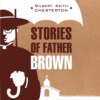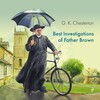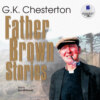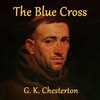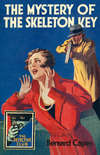Read the book: «Robert Browning»
CHAPTER I
BROWNING IN EARLY LIFE
On the subject of Browning's work innumerable things have been said and remain to be said; of his life, considered as a narrative of facts, there is little or nothing to say. It was a lucid and public and yet quiet life, which culminated in one great dramatic test of character, and then fell back again into this union of quietude and publicity. And yet, in spite of this, it is a great deal more difficult to speak finally about his life than about his work. His work has the mystery which belongs to the complex; his life the much greater mystery which belongs to the simple. He was clever enough to understand his own poetry; and if he understood it, we can understand it. But he was also entirely unconscious and impulsive, and he was never clever enough to understand his own character; consequently we may be excused if that part of him which was hidden from him is partly hidden from us. The subtle man is always immeasurably easier to understand than the natural man; for the subtle man keeps a diary of his moods, he practises the art of self-analysis and self-revelation, and can tell us how he came to feel this or to say that. But a man like Browning knows no more about the state of his emotions than about the state of his pulse; they are things greater than he, things growing at will, like forces of Nature. There is an old anecdote, probably apocryphal, which describes how a feminine admirer wrote to Browning asking him for the meaning of one of his darker poems, and received the following reply: "When that poem was written, two people knew what it meant – God and Robert Browning. And now God only knows what it means." This story gives, in all probability, an entirely false impression of Browning's attitude towards his work. He was a keen artist, a keen scholar, he could put his finger on anything, and he had a memory like the British Museum Library. But the story does, in all probability, give a tolerably accurate picture of Browning's attitude towards his own emotions and his psychological type. If a man had asked him what some particular allusion to a Persian hero meant he could in all probability have quoted half the epic; if a man had asked him which third cousin of Charlemagne was alluded to in Sordello, he could have given an account of the man and an account of his father and his grandfather. But if a man had asked him what he thought of himself, or what were his emotions an hour before his wedding, he would have replied with perfect sincerity that God alone knew.
This mystery of the unconscious man, far deeper than any mystery of the conscious one, existing as it does in all men, existed peculiarly in Browning, because he was a very ordinary and spontaneous man. The same thing exists to some extent in all history and all affairs. Anything that is deliberate, twisted, created as a trap and a mystery, must be discovered at last; everything that is done naturally remains mysterious. It may be difficult to discover the principles of the Rosicrucians, but it is much easier to discover the principles of the Rosicrucians than the principles of the United States: nor has any secret society kept its aims so quiet as humanity. The way to be inexplicable is to be chaotic, and on the surface this was the quality of Browning's life; there is the same difference between judging of his poetry and judging of his life, that there is between making a map of a labyrinth and making a map of a mist. The discussion of what some particular allusion in Sordello means has gone on so far, and may go on still, but it has it in its nature to end. The life of Robert Browning, who combines the greatest brain with the most simple temperament known in our annals, would go on for ever if we did not decide to summarise it in a very brief and simple narrative.
Robert Browning was born in Camberwell on May 7th 1812. His father and grandfather had been clerks in the Bank of England, and his whole family would appear to have belonged to the solid and educated middle class – the class which is interested in letters, but not ambitious in them, the class to which poetry is a luxury, but not a necessity.
This actual quality and character of the Browning family shows some tendency to be obscured by matters more remote. It is the custom of all biographers to seek for the earliest traces of a family in distant ages and even in distant lands; and Browning, as it happens, has given them opportunities which tend to lead away the mind from the main matter in hand. There is a tradition, for example, that men of his name were prominent in the feudal ages; it is based upon little beyond a coincidence of surnames and the fact that Browning used a seal with a coat-of-arms. Thousands of middle-class men use such a seal, merely because it is a curiosity or a legacy, without knowing or caring anything about the condition of their ancestors in the Middle Ages. Then, again, there is a theory that he was of Jewish blood; a view which is perfectly conceivable, and which Browning would have been the last to have thought derogatory, but for which, as a matter of fact, there is exceedingly little evidence. The chief reason assigned by his contemporaries for the belief was the fact that he was, without doubt, specially and profoundly interested in Jewish matters. This suggestion, worthless in any case, would, if anything, tell the other way. For while an Englishman may be enthusiastic about England, or indignant against England, it never occurred to any living Englishman to be interested in England. Browning was, like every other intelligent Aryan, interested in the Jews; but if he was related to every people in which he was interested, he must have been of extraordinarily mixed extraction. Thirdly, there is the yet more sensational theory that there was in Robert Browning a strain of the negro. The supporters of this hypothesis seem to have little in reality to say, except that Browning's grandmother was certainly a Creole. It is said in support of the view that Browning was singularly dark in early life, and was often mistaken for an Italian. There does not, however, seem to be anything particular to be deduced from this, except that if he looked like an Italian, he must have looked exceedingly unlike a negro.
There is nothing valid against any of these three theories, just as there is nothing valid in their favour; they may, any or all of them, be true, but they are still irrelevant. They are something that is in history or biography a great deal worse than being false – they are misleading. We do not want to know about a man like Browning, whether he had a right to a shield used in the Wars of the Roses, or whether the tenth grandfather of his Creole grandmother had been white or black: we want to know something about his family, which is quite a different thing. We wish to have about Browning not so much the kind of information which would satisfy Clarencieux King-at-Arms, but the sort of information which would satisfy us, if we were advertising for a very confidential secretary, or a very private tutor. We should not be concerned as to whether the tutor were descended from an Irish king, but we should still be really concerned about his extraction, about what manner of people his had been for the last two or three generations. This is the most practical duty of biography, and this is also the most difficult. It is a great deal easier to hunt a family from tombstone to tombstone back to the time of Henry II. than to catch and realise and put upon paper that most nameless and elusive of all things – social tone.
It will be said immediately, and must as promptly be admitted, that we could find a biographical significance in any of these theories if we looked for it. But it is, indeed, the sin and snare of biographers that they tend to see significance in everything; characteristic carelessness if their hero drops his pipe, and characteristic carefulness if he picks it up again. It is true, assuredly, that all the three races above named could be connected with Browning's personality. If we believed, for instance, that he really came of a race of mediæval barons, we should say at once that from them he got his pre-eminent spirit of battle: we should be right, for every line in his stubborn soul and his erect body did really express the fighter; he was always contending, whether it was with a German theory about the Gnostics, or with a stranger who elbowed his wife in a crowd. Again, if we had decided that he was a Jew, we should point out how absorbed he was in the terrible simplicity of monotheism: we should be right, for he was so absorbed. Or again, in the case even of the negro fancy; it would not be difficult for us to suggest a love of colour, a certain mental gaudiness, a pleasure
"When reds and blues were indeed red and blue,"
as he says in The Ring and the Book. We should be right; for there really was in Browning a tropical violence of taste, an artistic scheme compounded as it were, of orchids and cockatoos, which, amid our cold English poets, seems scarcely European. All this is extremely fascinating; and it may be true. But, as has above been suggested, here comes in the great temptation of this kind of work, the noble temptation to see too much in everything. The biographer can easily see a personal significance in these three hypothetical nationalities. But is there in the world a biographer who could lay his hand upon his heart and say that he would not have seen as much significance in any three other nationalities? If Browning's ancestors had been Frenchmen, should we not have said that it was from them doubtless that he inherited that logical agility which marks him among English poets? If his grandfather had been a Swede, should we not have said that the old sea-roving blood broke out in bold speculation and insatiable travel? If his great-aunt had been a Red Indian, should we not have said that only in the Ojibways and the Blackfeet do we find the Browning fantasticality combined with the Browning stoicism? This over-readiness to seize hints is an inevitable part of that secret hero-worship which is the heart of biography. The lover of great men sees signs of them long before they begin to appear on the earth, and, like some old mythological chronicler, claims as their heralds the storms and the falling stars.
A certain indulgence must therefore be extended to the present writer if he declines to follow that admirable veteran of Browning study, Dr. Furnivall, into the prodigious investigations which he has been conducting into the condition of the Browning family since the beginning of the world. For his last discovery, the descent of Browning from a footman in the service of a country magnate, there seems to be suggestive, though not decisive evidence. But Browning's descent from barons, or Jews, or lackeys, or black men, is not the main point touching his family. If the Brownings were of mixed origin, they were so much the more like the great majority of English middle-class people. It is curious that the romance of race should be spoken of as if it were a thing peculiarly aristocratic; that admiration for rank, or interest in family, should mean only interest in one not very interesting type of rank and family. The truth is that aristocrats exhibit less of the romance of pedigree than any other people in the world. For since it is their principle to marry only within their own class and mode of life, there is no opportunity in their case for any of the more interesting studies in heredity; they exhibit almost the unbroken uniformity of the lower animals. It is in the middle classes that we find the poetry of genealogy; it is the suburban grocer standing at his shop door whom some wild dash of Eastern or Celtic blood may drive suddenly to a whole holiday or a crime. Let us admit then, that it is true that these legends of the Browning family have every abstract possibility. But it is a far more cogent and apposite truth that if a man had knocked at the door of every house in the street where Browning was born, he would have found similar legends in all of them. There is hardly a family in Camberwell that has not a story or two about foreign marriages a few generations back; and in all this the Brownings are simply a typical Camberwell family. The real truth about Browning and men like him can scarcely be better expressed than in the words of that very wise and witty story, Kingsley's Water Babies, in which the pedigree of the Professor is treated in a manner which is an excellent example of the wild common sense of the book. "His mother was a Dutch woman, and therefore she was born at Curaçoa (of course, you have read your geography and therefore know why), and his father was a Pole, and therefore he was brought up at Petropaulowski (of course, you have learnt your modern politics, and therefore know why), but for all that he was as thorough an Englishman as ever coveted his neighbour's goods."
It may be well therefore to abandon the task of obtaining a clear account of Brownings family, and endeavour to obtain, what is much more important, a clear account of his home. For the great central and solid fact, which these heraldic speculations tend inevitably to veil and confuse, is that Browning was a thoroughly typical Englishman of the middle class. He may have had alien blood, and that alien blood, by the paradox we have observed, may have made him more characteristically a native. A phase, a fancy, a metaphor may or may not have been born of eastern or southern elements, but he was, without any question at all, an Englishman of the middle class. Neither all his liberality nor all his learning ever made him anything but an Englishman of the middle class. He expanded his intellectual tolerance until it included the anarchism of Fifine at the Fair and the blasphemous theology of Caliban; but he remained himself an Englishman of the middle class. He pictured all the passions of the earth since the Fall, from the devouring amorousness of Time's Revenges to the despotic fantasy of Instans Tyrannus; but he remained himself an Englishman of the middle class. The moment that he came in contact with anything that was slovenly, anything that was lawless, in actual life, something rose up in him, older than any opinions, the blood of generations of good men. He met George Sand and her poetical circle and hated it, with all the hatred of an old city merchant for the irresponsible life. He met the Spiritualists and hated them, with all the hatred of the middle class for borderlands and equivocal positions and playing with fire. His intellect went upon bewildering voyages, but his soul walked in a straight road. He piled up the fantastic towers of his imagination until they eclipsed the planets; but the plan of the foundation on which he built was always the plan of an honest English house in Camberwell. He abandoned, with a ceaseless intellectual ambition, every one of the convictions of his class; but he carried its prejudices into eternity.
It is then of Browning as a member of the middle class, that we can speak with the greatest historical certainty; and it is his immediate forebears who present the real interest to us. His father, Robert Browning, was a man of great delicacy of taste, and to all appearance of an almost exaggerated delicacy of conscience. Every glimpse we have of him suggests that earnest and almost worried kindliness which is the mark of those to whom selfishness, even justifiable selfishness, is really a thing difficult or impossible. In early life Robert Browning senior was placed by his father (who was apparently a father of a somewhat primitive, not to say barbaric, type) in an important commercial position in the West Indies. He threw up the position however, because it involved him in some recognition of slavery. Whereupon his unique parent, in a transport of rage, not only disinherited him and flung him out of doors, but by a superb stroke of humour, which stands alone in the records of parental ingenuity, sent him in a bill for the cost of his education. About the same time that he was suffering for his moral sensibility he was also disturbed about religious matters, and he completed his severance from his father by joining a dissenting sect. He was, in short, a very typical example of the serious middle-class man of the Wilberforce period, a man to whom duty was all in all, and who would revolutionise an empire or a continent for the satisfaction of a single moral scruple. Thus, while he was Puritan at the core, not the ruthless Puritan of the seventeenth, but the humanitarian Puritan of the eighteenth century, he had upon the surface all the tastes and graces of a man of culture. Numerous accomplishments of the lighter kind, such as drawing and painting in water colours, he possessed; and his feeling for many kinds of literature was fastidious and exact. But the whole was absolutely redolent of the polite severity of the eighteenth century. He lamented his son's early admiration for Byron, and never ceased adjuring him to model himself upon Pope.
He was, in short, one of the old-fashioned humanitarians of the eighteenth century, a class which we may or may not have conquered in moral theory, but which we most certainly have not conquered in moral practice. Robert Browning senior destroyed all his fortunes in order to protest against black slavery; white slavery may be, as later economists tell us, a thing infinitely worse, but not many men destroy their fortunes in order to protest against it. The ideals of the men of that period appear to us very unattractive; to them duty was a kind of chilly sentiment. But when we think what they did with those cold ideals, we can scarcely feel so superior. They uprooted the enormous Upas of slavery, the tree that was literally as old as the race of man. They altered the whole face of Europe with their deductive fancies. We have ideals that are really better, ideals of passion, of mysticism, of a sense of the youth and adventurousness of the earth; but it will be well for us if we achieve as much by our frenzy as they did by their delicacies. It scarcely seems as if we were as robust in our very robustness as they were robust in their sensibility.
Robert Browning's mother was the daughter of William Wiedermann, a German merchant settled in Dundee, and married to a Scotch wife. One of the poet's principal biographers has suggested that from this union of the German and Scotch, Browning got his metaphysical tendency; it is possible; but here again we must beware of the great biographical danger of making mountains out of molehills. What Browning's mother unquestionably did give to him, was in the way of training – a very strong religious habit, and a great belief in manners. Thomas Carlyle called her "the type of a Scottish gentlewoman," and the phrase has a very real significance to those who realise the peculiar condition of Scotland, one of the very few European countries where large sections of the aristocracy are Puritans; thus a Scottish gentlewoman combines two descriptions of dignity at the same time. Little more is known of this lady except the fact that after her death Browning could not bear to look at places where she had walked.
Browning's education in the formal sense reduces itself to a minimum. In very early boyhood he attended a species of dame-school, which, according to some of his biographers, he had apparently to leave because he was too clever to be tolerable. However this may be, he undoubtedly went afterwards to a school kept by Mr. Ready, at which again he was marked chiefly by precocity. But the boy's education did not in truth take place at any systematic seat of education; it took place in his own home, where one of the quaintest and most learned and most absurdly indulgent of fathers poured out in an endless stream fantastic recitals from the Greek epics and mediæval chronicles. If we test the matter by the test of actual schools and universities, Browning will appear to be almost the least educated man in English literary history. But if we test it by the amount actually learned, we shall think that he was perhaps the most educated man that ever lived; that he was in fact, if anything, overeducated. In a spirited poem he has himself described how, when he was a small child, his father used to pile up chairs in the drawing-room and call them the city of Troy. Browning came out of the home crammed with all kinds of knowledge – knowledge about the Greek poets, knowledge about the Provençal Troubadours, knowledge about the Jewish Rabbis of the Middle Ages. But along with all this knowledge he carried one definite and important piece of ignorance, an ignorance of the degree to which such knowledge was exceptional. He was no spoilt and self-conscious child, taught to regard himself as clever. In the atmosphere in which he lived learning was a pleasure, and a natural pleasure, like sport or wine. He had in it the pleasure of some old scholar of the Renascence, when grammar itself was as fresh as the flowers of spring. He had no reason to suppose that every one did not join in so admirable a game. His sagacious destiny, while giving him knowledge of everything else, left him in ignorance of the ignorance of the world.
Of his boyish days scarcely any important trace remains, except a kind of diary which contains under one date the laconic statement, "Married two wives this morning." The insane ingenuity of the biographer would be quite capable of seeing in this a most suggestive foreshadowing of the sexual dualism which is so ably defended in Fifine at the Fair. A great part of his childhood was passed in the society of his only sister Sariana; and it is a curious and touching fact that with her also he passed his last days. From his earliest babyhood he seems to have lived in a more or less stimulating mental atmosphere; but as he emerged into youth he came under great poetic influences, which made his father's classical poetic tradition look for the time insipid. Browning began to live in the life of his own age.
As a young man he attended classes at University College; beyond this there is little evidence that he was much in touch with intellectual circles outside that of his own family. But the forces that were moving the literary world had long passed beyond the merely literary area. About the time of Browning's boyhood a very subtle and profound change was beginning in the intellectual atmosphere of such homes as that of the Brownings. In studying the careers of great men we tend constantly to forget that their youth was generally passed and their characters practically formed in a period long previous to their appearance in history. We think of Milton, the Restoration Puritan, and forget that he grew up in the living shadow of Shakespeare and the full summer of the Elizabethan drama. We realise Garibaldi as a sudden and almost miraculous figure rising about fifty years ago to create the new Kingdom of Italy, and we forget that he must have formed his first ideas of liberty while hearing at his father's dinner-table that Napoleon was the master of Europe. Similarly, we think of Browning as the great Victorian poet, who lived long enough to have opinions on Mr. Gladstone's Home Rule Bill, and forget that as a young man he passed a bookstall and saw a volume ticketed "Mr. Shelley's Atheistic Poem," and had to search even in his own really cultivated circle for some one who could tell him who Mr. Shelley was. Browning was, in short, born in the afterglow of the great Revolution.
The French Revolution was at root a thoroughly optimistic thing. It may seem strange to attribute optimism to anything so destructive; but, in truth, this particular kind of optimism is inevitably, and by its nature, destructive. The great dominant idea of the whole of that period, the period before, during, and long after the Revolution, is the idea that man would by his nature live in an Eden of dignity, liberty and love, and that artificial and decrepit systems are keeping him out of that Eden. No one can do the least justice to the great Jacobins who does not realise that to them breaking the civilisation of ages was like breaking the cords of a treasure-chest. And just as for more than a century great men had dreamed of this beautiful emancipation, so the dream began in the time of Keats and Shelley to creep down among the dullest professions and the most prosaic classes of society. A spirit of revolt was growing among the young of the middle classes, which had nothing at all in common with the complete and pessimistic revolt against all things in heaven or earth, which has been fashionable among the young in more recent times. The Shelleyan enthusiast was altogether on the side of existence; he thought that every cloud and clump of grass shared his strict republican orthodoxy. He represented, in short, a revolt of the normal against the abnormal; he found himself, so to speak, in the heart of a wholly topsy-turvy and blasphemous state of things, in which God was rebelling against Satan. There began to arise about this time a race of young men like Keats, members of a not highly cultivated middle class, and even of classes lower, who felt in a hundred ways this obscure alliance with eternal things against temporal and practical ones, and who lived on its imaginative delight. They were a kind of furtive universalist; they had discovered the whole cosmos, and they kept the whole cosmos a secret. They climbed up dark stairs to meagre garrets, and shut themselves in with the gods. Numbers of the great men, who afterwards illuminated the Victorian era, were at this time living in mean streets in magnificent daydreams. Ruskin was solemnly visiting his solemn suburban aunts; Dickens was going to and fro in a blacking factory; Carlyle, slightly older, was still lingering on a poor farm in Dumfriesshire; Keats had not long become the assistant of the country surgeon when Browning was a boy in Camberwell. On all sides there was the first beginning of the æsthetic stir in the middle classes which expressed itself in the combination of so many poetic lives with so many prosaic livelihoods. It was the age of inspired office-boys.
Browning grew up, then, with the growing fame of Shelley and Keats, in the atmosphere of literary youth, fierce and beautiful, among new poets who believed in a new world. It is important to remember this, because the real Browning was a quite different person from the grim moralist and metaphysician who is seen through the spectacles of Browning Societies and University Extension Lecturers. Browning was first and foremost a poet, a man made to enjoy all things visible and invisible, a priest of the higher passions. The misunderstanding that has supposed him to be other than poetical, because his form was often fanciful and abrupt, is really different from the misunderstanding which attaches to most other poets. The opponents of Victor Hugo called him a mere windbag; the opponents of Shakespeare called him a buffoon. But the admirers of Hugo and Shakespeare at least knew better. Now the admirers and opponents of Browning alike make him out to be a pedant rather than a poet. The only difference between the Browningite and the anti-Browningite, is that the second says he was not a poet but a mere philosopher, and the first says he was a philosopher and not a mere poet. The admirer disparages poetry in order to exalt Browning; the opponent exalts poetry in order to disparage Browning; and all the time Browning himself exalted poetry above all earthly things, served it with single-hearted intensity, and stands among the few poets who hardly wrote a line of anything else.
The whole of the boyhood and youth of Robert Browning has as much the quality of pure poetry as the boyhood and youth of Shelley. We do not find in it any trace of the analytical Browning who is believed in by learned ladies and gentlemen. How indeed would such sympathisers feel if informed that the first poems that Browning wrote in a volume called Incondita were noticed to contain the fault of "too much splendour of language and too little wealth of thought"? They were indeed Byronic in the extreme, and Browning in his earlier appearances in society presents himself in quite a romantic manner. Macready, the actor, wrote of him: "He looks and speaks more like a young poet than any one I have ever seen." A picturesque tradition remains that Thomas Carlyle, riding out upon one of his solitary gallops necessitated by his physical sufferings, was stopped by one whom he described as a strangely beautiful youth, who poured out to him without preface or apology his admiration for the great philosopher's works. Browning at this time seems to have left upon many people this impression of physical charm. A friend who attended University College with him says: "He was then a bright handsome youth with long black hair falling over his shoulders." Every tale that remains of him in connection with this period asserts and reasserts the completely romantic spirit by which he was then possessed. He was fond, for example, of following in the track of gipsy caravans, far across country, and a song which he heard with the refrain, "Following the Queen of the Gipsies oh!" rang in his ears long enough to express itself in his soberer and later days in that splendid poem of the spirit of escape and Bohemianism, The Flight of the Duchess. Such other of these early glimpses of him as remain, depict him as striding across Wimbledon Common with his hair blowing in the wind, reciting aloud passages from Isaiah, or climbing up into the elms above Norwood to look over London by night. It was when looking down from that suburban eyrie over the whole confounding labyrinth of London that he was filled with that great irresponsible benevolence which is the best of the joys of youth, and conceived the idea of a perfectly irresponsible benevolence in the first plan of Pippa Passes. At the end of his father's garden was a laburnum "heavy with its weight of gold," and in the tree two nightingales were in the habit of singing against each other, a form of competition which, I imagine, has since become less common in Camberwell. When Browning as a boy was intoxicated with the poetry of Shelley and Keats, he hypnotised himself into something approaching to a positive conviction that these two birds were the spirits of the two great poets who had settled in a Camberwell garden, in order to sing to the only young gentleman who really adored and understood them. This last story is perhaps the most typical of the tone common to all the rest; it would be difficult to find a story which across the gulf of nearly eighty years awakens so vividly a sense of the sumptuous folly of an intellectual boyhood. With Browning, as with all true poets, passion came first and made intellectual expression, the hunger for beauty making literature as the hunger for bread made a plough. The life he lived in those early days was no life of dull application; there was no poet whose youth was so young. When he was full of years and fame, and delineating in great epics the beauty and horror of the romance of southern Europe, a young man, thinking to please him, said, "There is no romance now except in Italy." "Well," said Browning, "I should make an exception of Camberwell."












